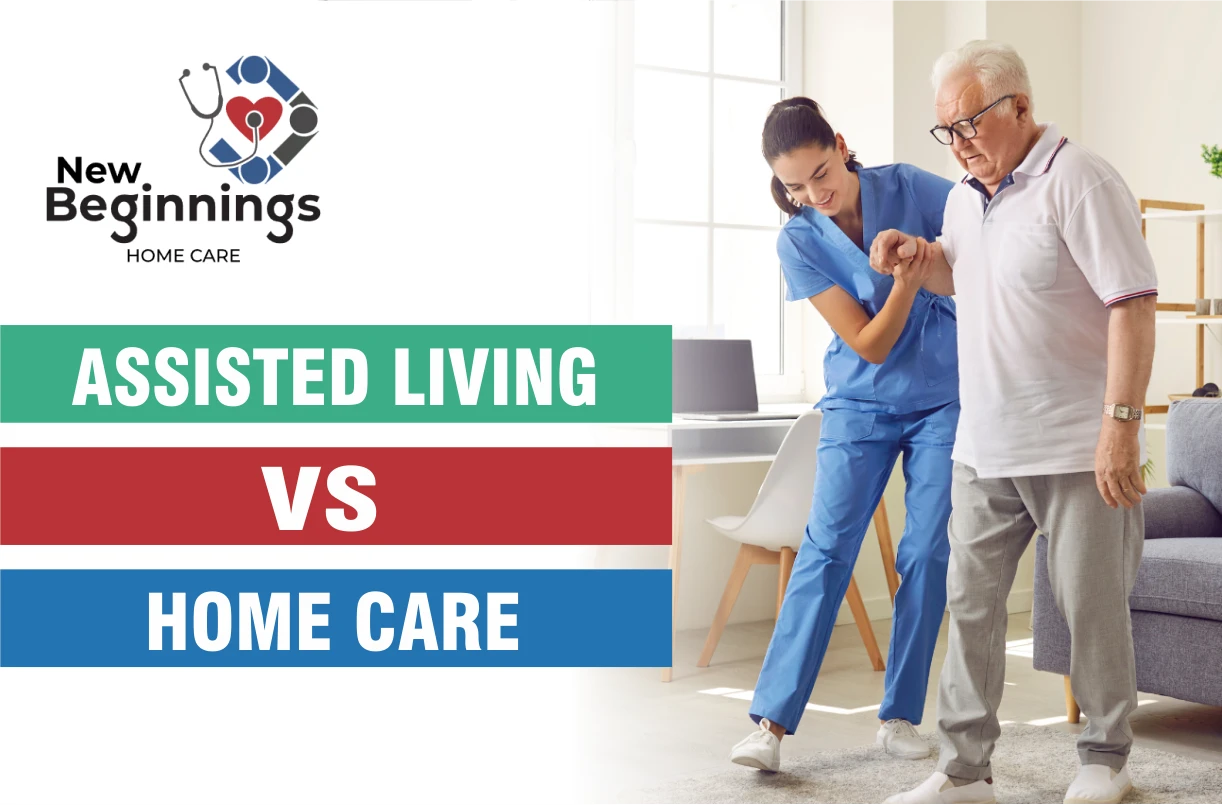Assisted Living vs Home Care
Assisted living and home care provide different levels of support for people who need daily living help, especially seniors. Assisted living offers a community setting with bathing, medication management, and dressing whereas home care provides support to the individual directly to their home where caregivers help with personal care, meal preparation, and medication reminders . However, the choice between the two will depend on their needs, financial considerations, and preferences.
Many people enlist the services of a home care agency in Philadelphia to help pair their loved one with a caregiver for care at home while others may prefer using an assisted living quality facility for their senior’s needs. Regardless, it is important to know the differences between the two.

What is Assisted Living?
Assisted living facilities, sometimes known as board and care homes, are a form of senior housing that provides supportive living assistance while allowing an individual to continue having an independent living lifestyle. Assisted living facilities are not skilled nursing facilities or long-term care facilities and are more akin to group homes and can be great to prevent social isolation.
Services Provided in Assisted Living
An assisted living facility, unlike a nursing home or other residential care homes which provides the following:
Personal Care Assistance such as
- Activities of Daily Living (ADLs)
- Medication Management
- Health Monitoring
Support Services such as
- Meals
- Housekeeping
- Transportation
Social and Recreational Activities such as
- Engagement with social events and outings
- Community Living
Additional Services such as
- Staffing
- Security
- Respite care
- Memory care
Benefits of Assisted Living Over In-Home Care
In the assisted living vs home care debate, one of the primary benefits of is the social opportunities that it provides such as interaction with other seniors in the common areas, community outings, and planned activities such as adult daycare. This can work great as depression and anxiety support for elderly individuals, combating feelings of isolation and loneliness.
Furthermore, assisted living facilities provide comprehensive care on site with staffing support available for housekeeping, laundry, meal service, and personal care services meaning that almost everything they need is on-site.
What is Home Care?
Home care can either consist of a family caregiver or a caregiver paired with an individual through a private home care provider. A caregiver assists an individual with their activities of daily living through care at home so they can continue living a no-care lifestyle in the comfort of their own home. Individuals who can no longer maintain an unassisted living lifestyle can enlist home care support for seniors to assist them with daily living .

Services Provided in In-Home Care
In-home care is often highly personalized and customizable to offer the services and levels of care that an individual needs and wants. This often includes personal care services such as assistance bathing, grooming, getting dressed, mobility care for individuals with mobility issues, and incontinence care, if necessary. Caregivers can also assist with transportation services, meal preparation, wound care, and assistance with physical activity to improve an individual’s quality of life.
Other home care amenities can include companion care services with a caregiver acting as a companion for an elderly individual, engaging in conversation with them, doing activities, and playing games with them. Home care providers also help with meal preparation, light housekeeping, medication reminders, transportation, and running errands like grocery shopping so they can maintain their independence.
Skilled caregivers and home care agencies can also perform an in-house care assessment to determine any home modifications that need to be made to the home to make it safer such as a non-slip flooring and wider doorways for mobility challenges so seniors can still have their independence.
Benefits of In-Home Care Over Assisted Living
One of the primary benefits of home care vs assisted living for seniors is that they get to stay in their own home and do not have to move somewhere else as they would be required to be in assisted living communities. In-home care creates a familiar environment where pet ownership is allowed and seniors can receive full-time care and maintenance-free living. Home care can be incredibly flexible with anywhere from part-time support to 24/7 skilled care so an individual can choose the level of care they need.
In-home can also be useful for rehab after a surgery or an illness with help from custodial care assisting an individual with their daily activities and rehabilitation services while they recover. Furthermore, family caregivers can also receive benefits from professional in-home care through respite care when they need to take a break from their caregiving duties and relieve their caregiver stress.
Home health care can also be useful to get personalized care such as for people who suffer from a progressive disease, cognitive decline, sundowning, need 24- hour supervision or need specialized care such as one-on-one care or other health care services.
Who Qualifies for In-Home Care or Assisted Living?
When looking at home care eligibility, individuals who want to stay in their own home but need assistance doing their daily activities are usually good candidates. This can include individuals who need constant assistance and even dementia and emotional care. The home care insurance regulations may vary by plan.
When looking into an assisted living family guide, it will often recommend assisted living for an individual who is in relatively stable health who needs assistance with their daily activities and would benefit from things such as meal plans and counseling for seniors.
Schedule a Free Consultation to Explore Care Solutions That Fit Your Needs
If you are interested in quality in-home care for a loved one, New Beginnings Home Care is here for you, providing exceptional eldercare options for seniors who want to remain in the comfort of their own home. Schedule a free consultation with our experts who can assist seniors with help, seniors with dementia, and individuals that need 24/7 help.